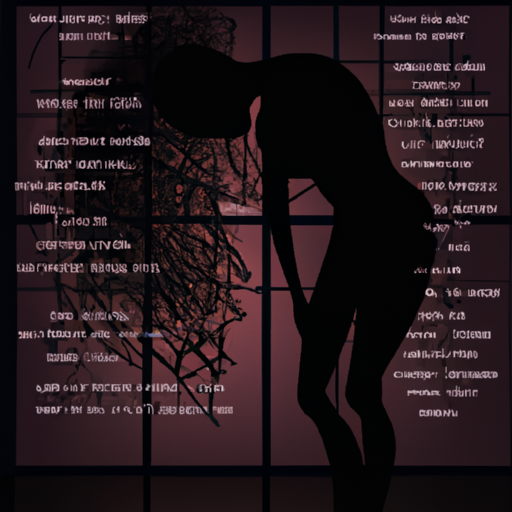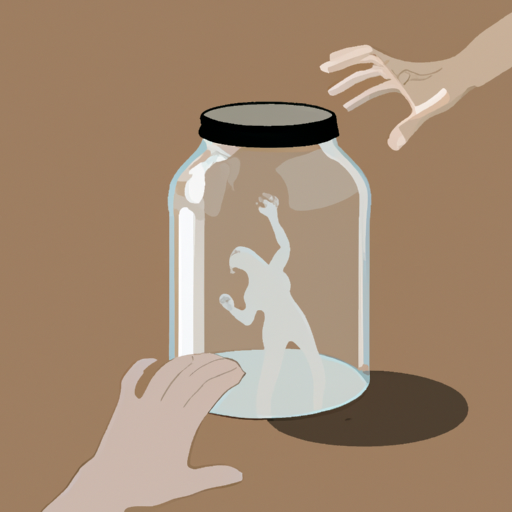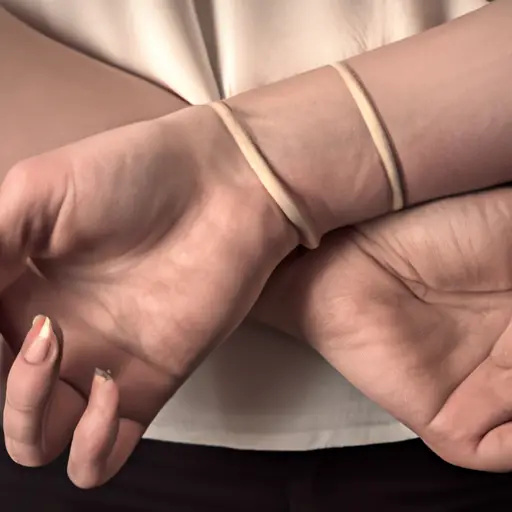Are you caught in a stormy sea, where the waves crash against your fragile heart? In relationships, it’s essential to recognize the warning signs of emotional abuse. This form of abuse can leave lasting scars on your emotional well-being and self-esteem. By understanding the signs, you can navigate away from the treacherous waters and towards healthier shores. Watch for changes in your partner’s behavior, such as sudden mood swings or explosive anger. Pay attention to constant criticism and belittling, as these actions can chip away at your self-worth. Be wary of controlling and manipulative behaviors that undermine your autonomy. And if you find yourself isolated and withdrawn from your loved ones, it may be time to seek help and regain control of your life.
Key Takeaways
- Changes in behavior and emotional distance, such as withdrawal and mood swings, can be warning signs of emotional abuse.
- Constant criticism and belittling can severely impact mental health and lead to feelings of worthlessness.
- Controlling and manipulative actions, such as emotional manipulation and isolation, are tactics used for power and control.
- Isolation and withdrawal from friends, family, and activities, along with a loss of self-esteem, may indicate an emotionally abusive relationship.
Changes in Behavior
If your partner starts acting distant or withdraws from activities you used to enjoy together, it could be a red flag of emotional abuse. Emotional distance is a common tactic used by abusers to gain control and power over their victims. They may become cold and detached, leaving you feeling isolated and alone. This behavior can be confusing and hurtful, as you may wonder what you did wrong to cause such a change in your partner’s attitude. However, it’s important to remember that emotional abuse is not your fault and that you deserve to be treated with respect and kindness.
Another sign of emotional abuse is frequent mood swings. Your partner may go from being loving and affectionate one moment to angry and critical the next. These sudden shifts in behavior can leave you feeling on edge and constantly walking on eggshells. It can also make you question your own sanity and judgment, as you try to navigate the volatile emotions of your partner.
It’s important to recognize these warning signs and take them seriously. Emotional abuse can have long-term effects on your mental and emotional well-being. If you are experiencing these changes in behavior in your relationship, consider reaching out to a trusted friend or counselor for support. Remember, you deserve to be in a healthy and loving relationship.
Constant Criticism and Belittling

Pay attention if your partner consistently criticizes and belittles you. In a healthy relationship, there should be respect, support, and encouragement. Constant criticism and belittling can be signs of emotional abuse, where your feelings and worth are invalidated. It is important to recognize these warning signs and take steps to protect yourself. Here are some key points to consider:
-
Emotional Invalidation: When your partner constantly criticizes and dismisses your emotions, it can make you doubt yourself and feel invalidated. This can damage your self-esteem and make you question your own emotions and experiences.
-
Power Dynamics: Criticism and belittling are often used as tactics to assert power and control in a relationship. By constantly putting you down, your partner may be trying to maintain a sense of superiority and dominance over you.
-
Impact on Mental Health: Constant criticism and belittling can have a severe impact on your mental health. It can lead to feelings of worthlessness, anxiety, and depression. It is crucial to prioritize your mental well-being and seek support if you find yourself in this situation.
-
Isolation: Emotional abusers often isolate their partners from friends and family. By constantly criticizing and belittling you, they may try to make you believe that you are unworthy of love and support from others.
-
Lack of Respect: Respect is the foundation of any healthy relationship. Constant criticism and belittling show a lack of respect for your thoughts, feelings, and worth as an individual.
Controlling and Manipulative Actions

One of the warning signs of an emotionally abusive relationship is the partner’s controlling and manipulative actions. Emotional manipulation is a tactic used by abusers to gain power and control over their partners. They may use various tactics, such as guilt-tripping, gaslighting, or playing mind games, to manipulate your emotions and make you doubt yourself. These actions can create a significant power imbalance in the relationship, where the abuser holds all the power and the victim feels helpless and trapped.
Controlling actions can manifest in different ways. Your partner may become overly possessive, constantly checking your phone or monitoring your whereabouts. They may isolate you from friends and family, making you dependent on them for social interaction and support. They might also control your finances, making you rely on them for money and resources.
Manipulative actions can be subtle, making it harder to recognize the abuse. Your partner might twist your words, distort reality, or use emotional blackmail to get what they want. They may undermine your self-esteem, making you feel unworthy or incapable of making decisions. Over time, these manipulative behaviors can erode your sense of self and make you question your own sanity.
It is essential to recognize and address these controlling and manipulative actions in an emotionally abusive relationship. Seek support from friends, family, or professionals who can help you understand the dynamics of the abuse and provide you with guidance on how to safely leave the relationship. Remember, you deserve to be in a healthy and loving relationship, free from manipulation and control.
Isolation and Withdrawal

Feeling isolated and withdrawn is a common experience in an emotionally abusive relationship. It is important to recognize the signs of isolation and withdrawal as they can have a profound impact on your emotional well-being. Here are some key indicators to be aware of:
-
Emotional detachment: In an emotionally abusive relationship, you may find yourself emotionally detached from friends, family, and activities you once enjoyed. Your partner may try to control who you interact with and limit your social circle, leaving you feeling isolated and alone.
-
Loss of self-esteem: Emotional abuse often involves constant criticism, belittling, and undermining your self-worth. Over time, this can erode your self-esteem, making you doubt your abilities and value as a person.
-
Lack of support: Your partner may discourage or prevent you from seeking support from others, whether it be through therapy, counseling, or confiding in friends. This isolation can make it difficult for you to seek help and regain your sense of self.
-
Feeling trapped: Emotional abusers often manipulate and control their partners, making it feel impossible to leave the relationship. This sense of entrapment can further contribute to feelings of isolation and withdrawal.
-
Decreased social activities: In an emotionally abusive relationship, you may find yourself withdrawing from social activities, hobbies, and interests that once brought you joy. Your partner may discourage or prevent you from participating in these activities, leaving you feeling isolated.
It is important to remember that you are not alone in this experience. Seek support from trusted friends, family, or professionals who can help you navigate this challenging situation and regain your independence and self-worth.
Frequently Asked Questions
How Do I Approach My Partner About Their Changing Behavior Without Escalating the Situation Further?
Approaching your partner about their changing behavior can be challenging, but it’s crucial for your emotional well-being. Start by expressing concern and using "I" statements to avoid escalating the situation. Remember to prioritize your safety and seek support if needed.
Are There Any Specific Signs or Red Flags That Indicate Constant Criticism and Belittling in a Relationship?
You may notice signs of gaslighting and constant criticism in a relationship. These behaviors can have a profound impact on your mental health. It’s important to recognize these red flags and prioritize your well-being.
What Are Some Effective Strategies for Dealing With a Partner Who Exhibits Controlling and Manipulative Actions?
To deal with a partner who exhibits controlling and manipulative actions, focus on building your self-esteem and setting boundaries. Remember, you deserve respect and shouldn’t tolerate any form of emotional abuse. Seek support if needed.
How Can Friends and Family Members Support Someone Who Is Experiencing Isolation and Withdrawal in an Emotionally Abusive Relationship?
You can support someone going through isolation and withdrawal in an emotionally abusive relationship by recognizing the signs of emotional abuse, offering a listening ear, and encouraging them to seek professional help or contact a helpline.
Are There Any Legal Actions or Resources Available to Help Individuals Who Are Trapped in an Emotionally Abusive Relationship?
There are legal options and support resources available to help you if you’re trapped in an emotionally abusive relationship. Seek legal advice, contact helplines, and reach out to organizations that specialize in assisting individuals in your situation. Don’t suffer alone.
Conclusion
In conclusion, recognizing the warning signs of an emotionally abusive relationship is crucial for your well-being. Don’t turn a blind eye to changes in behavior, constant criticism, controlling actions, or isolation and withdrawal. Remember, the early bird catches the worm, so trust your instincts and seek support. You deserve a healthy and loving relationship, where you are cherished and respected. Stay informed, stay strong, and prioritize your emotional safety.


Leave a Reply